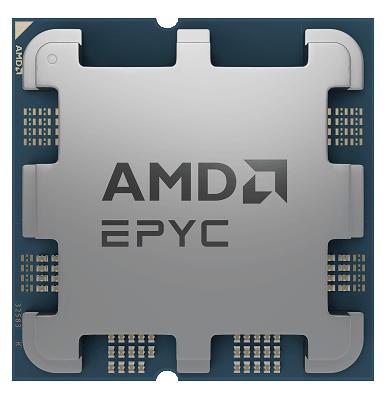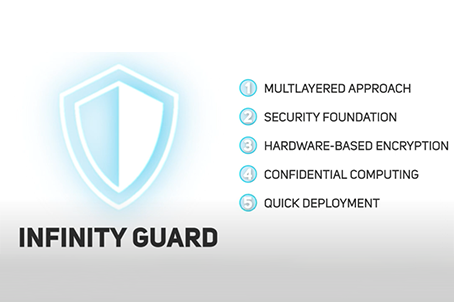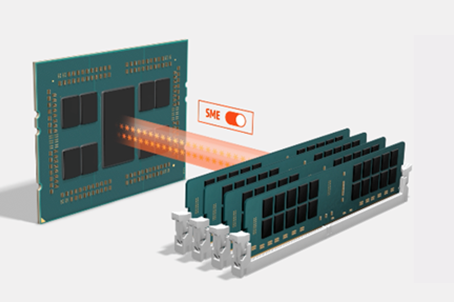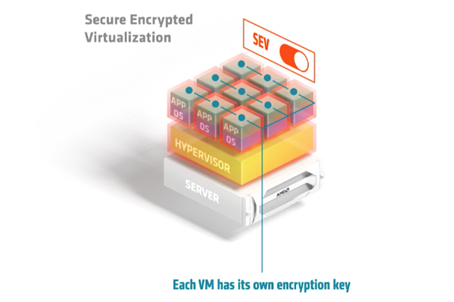AMD EPYC Server CPU Buyers Guide
The CPU or processor acts as the brain of a server, controlling almost all functions. AMD manufactures a wide range of server CPUs, under its EPYC brand, designed for use in everything from entry-level small office servers, systems optimised to deliver heavily virtualised environments, to high-density systems aimed at the most demanding high performance compute (HPC) and artificial intelligence (AI) workloads.
To simplify such a vast array of CPUs, AMD has divided its offering into generations - the latest being 5th gen designated as 9005, 4th gen as 9004 and so on. There are also number families within generations such as 8004 and 4005.

The most common EPYC processors are from the 9005, 9004, 7003 and 7002 ranges and are optimsed for a wide range of workloads.

EPYC 8004 processors are optimised for high density, single-socket power-sensitive environments.

EPYC 4005 and 4004 processors are optimised for entry-level servers in small and medium size businesses.



